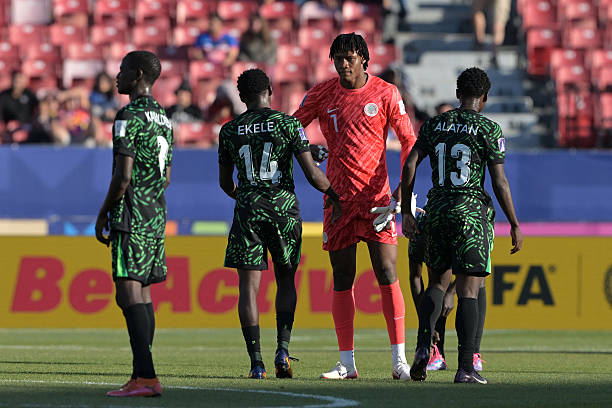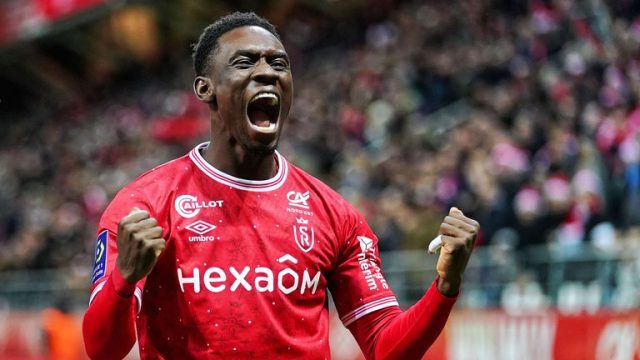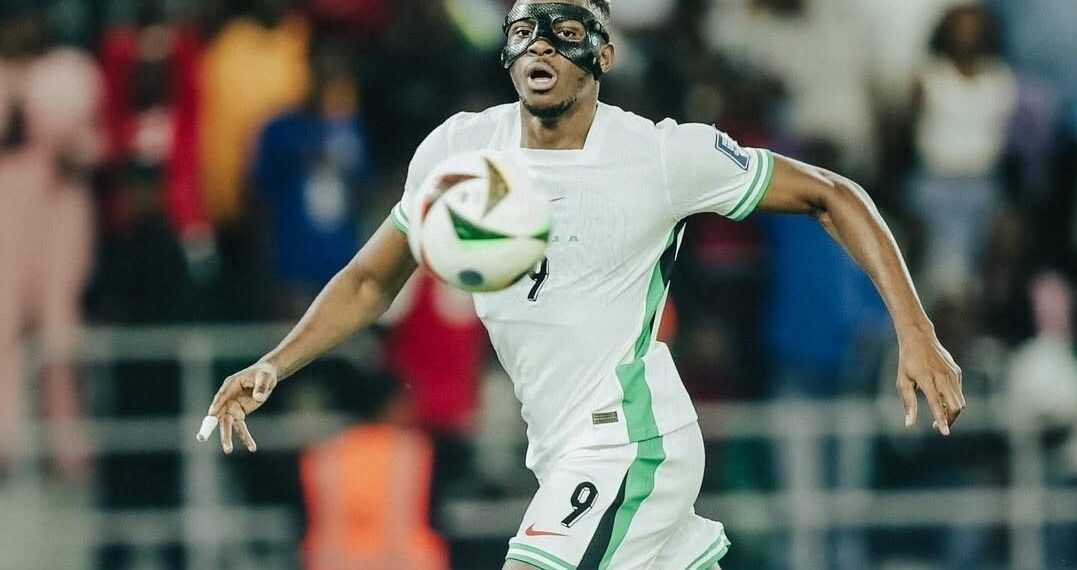In cities across Nigeria, viewing centres buzzed with anticipation as fans gathered, full of hope, to watch the Flying Eagles face off against Argentina’s youth team in the Round of 16 at the FIFA U-20 World Cup. With pride and a passionate football culture on display, supporters draped in green and white filled rooms from Lagos Island to Kano, united in the dream of advancing to the next stage. Yet, what followed was a night of difficult emotions as the young Nigerian squad succumbed to a 4–0 defeat against an Argentine side that demonstrated why they are considered tournament heavyweights.
A Commanding Argentine Performance
From the first whistle, Argentina’s U-20s made their intentions clear, dictating the pace and flow of the match with their signature short passes and sharp attacking combinations. Their early breakthrough stunned Nigerian players and fans alike—and set the tone for the encounter. Alejo Sarco, deft and composed, found the back of the net inside two minutes, instantly putting the Flying Eagles on the back foot.
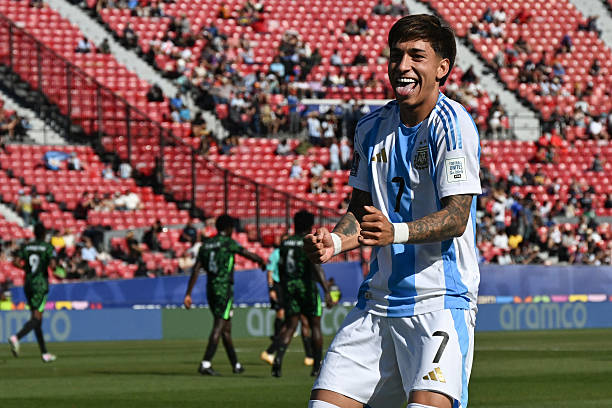
By the half-hour mark, Nigeria’s challenge grew steeper as Maher Carrizo doubled the advantage for Argentina with a brilliantly executed free kick, curling the ball beyond the outstretched hands of the Nigerian keeper. The young Eagles attempted to marshal a response, briefly threatening through their trademark counterattacking style, but the Argentine defense managed to absorb the pressure and maintain control.
Nigeria’s Missed Opportunities and Tactical Struggles
Observers across Lagos and Abuja noted that Nigeria’s inability to capitalize on their brief periods of possession contributed heavily to their undoing. Despite flashes of individual skill from midfielders and wingers, the team struggled to fuse their physical play with coordinated attacks, as Argentina’s tactical discipline kept spaces tightly closed.
Commenting after the match, coach Aliyu Zubairu spoke candidly about the setbacks his team faced. “I think the early goal destabilized us,” he admitted. “We conceded too early, and the second goal came not long after. That affected our stability and approach. I believe the boys didn’t show enough character — the fight wasn’t there when we lost the ball. We gave Argentina too much space and watched instead of reacting quickly.”
According to local sports analysts, Nigeria’s struggle to bridge the gap between midfield and attack reflected issues that had been hinted at during the group stage, where consistency was sometimes lacking. Soccer commentator Eric Oghenevwegba observed, “The Flying Eagles have exceptional physicality, but at this level, structure and tactical intelligence are what separate the contenders from the rest.”
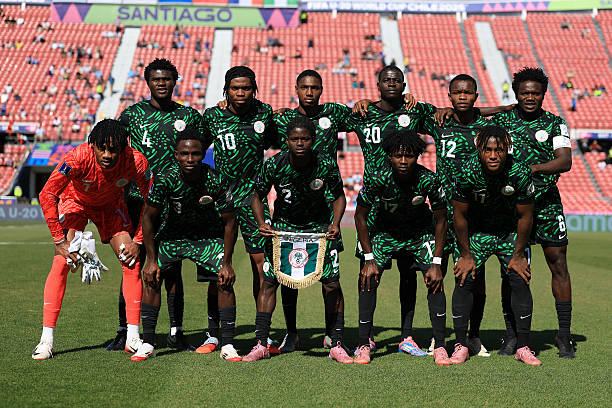
Second-Half Resolve Shattered by Argentine Precision
After the interval, fans still harboured hope that Nigeria could mount a comeback, drawing from the team’s history of resilience at youth competitions. However, Argentina further deepened the deficit seven minutes into the second half, as Carrizo completed his brace, capitalizing on a defensive lapse. Substitute Mateo Silvetti added a fourth late in the match, sealing a comprehensive victory for the South Americans.
The Flying Eagles could not find a way back, and frustration among fans was palpable. Many believed that Nigeria’s young talents—while technically gifted—lacked the mental edge needed to respond to early adversity on such a big stage. According to radio host Tolu Adesina, “We shouldn’t be too harsh. This is a learning opportunity for our boys, and sometimes, defeat is the best teacher. However, we do need to look at our grassroots coaching systems and mental preparation if we want to consistently compete with football superpowers.”
Coach Takes Responsibility, Fans Seek Answers
In his post-match remarks, Coach Zubairu shouldered the blame, following the practice of holding leadership to account—while also acknowledging that football can be cruel. “But that’s football. Sometimes it goes this way. I take full responsibility. When they win, it’s the boys. When they lose, I take the blame,” he said, in a statement quoted by multiple outlets.
Reactions on social media ranged from disappointment to optimism for the future. One Nigerian supporter, Ugochukwu from Asaba, commented on X: “It’s painful, but let’s remember many of these boys are still developing. At least we made it out of our group and showed flashes of brilliance.” Others called for a renewed focus on discipline and coaching, especially as neighboring Ghanaian youth teams and other West African sides have posted strong showings in past competitions.
The Broader Context: African Football Development
Nigeria remains one of the most storied nations in U-20 World Cup history, with two final appearances and several semi-final runs, but the gap with Europe and South America persists. According to FIFA development statistics, African teams—while boasting dynamic athletes—still wrestle with limited technical and psychological resources compared to their counterparts in Argentina, Spain, or France. Some experts, such as Lagos-based youth coach Peter Aluko, believe the solution lies in structured academies and year-round exposure to high-level competition. “Talent is never our issue,” Aluko stated, “It’s the system backing the talent.”
Ghana and Senegal’s recent investments in youth development have also seen their teams advance deeper into world tournaments, providing a template for Nigeria and other West African nations to emulate. Collaboration with clubs in Europe, access to sports psychology, and tactical discipline have been recurring themes at international football development seminars.
Comparing Past Performances: Learning from Defeats
Comparatively, the 2024 edition saw the Nigerian Flying Eagles exit at the same stage as they did in 2019. Historically, the team reached the final in 1989 and 2005 but are yet to lift the trophy. The recurring issue of converting promising individual skills into tournament-winning teams remains a key topic among Nigerian sports enthusiasts. Many in the local football community are now calling for systemic reforms, including technical training for coaches and improved educational support for young players.
While disappointment lingers, the broader football community is not losing hope. As one fan in Port Harcourt noted, “We still dey kampe—but we need change, and it must come from the top.” The Nigerian Football Federation has indicated plans to review coaching structures and development pipelines in response to the nation’s latest World Cup exit.
Looking Ahead: Reflections and Renewed Ambitions
Despite bowing out, the Flying Eagles’ journey in the 2024 U-20 World Cup offered valuable experience for a new generation of Nigerian footballers. Many of these players are expected to feature for the Super Eagles in years to come, and their exposure on a global stage is an invaluable springboard for future success. The local football academies, fans, and governing bodies alike will be watching closely as this cohort develops, hopeful that lessons from Merida will fuel future triumphs—and restore Nigeria’s position at the top tier of African youth football.
For now, Argentinians celebrate a place in the quarter-finals, while Nigeria’s Flying Eagles return home, already setting their sights on the next opportunity to make the continent proud.
What lessons do you think Nigeria’s Flying Eagles—and football administrators—should take from this defeat? Share your thoughts in the comments and let’s keep the conversation going. For constant updates on Nigerian and African football, follow our social platforms.
Stay connected and be part of our vibrant sports community—follow us on Facebook, X (Twitter), and Instagram for breaking updates, exclusive commentary, and behind-the-scenes sports gist!

